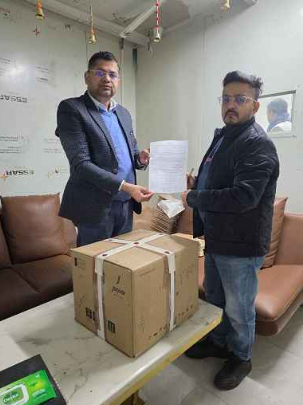New Delhi: ICRA expects the revenues of the sample set of 25 Indian pharmaceutical companies (which account for ~60 per cent of the overall Indian pharmaceutical industry) to grow by 7-9 per cent in FY2024, post a YoY growth of 10 per cent in FY2023. The same will be primarily supported by 8-10 per cent expansion in the domestic market and 6-8 per cent growth in the US market, while revenues from the European market and Emerging Markets are expected to rise by 3-5 per cent and 8-10 per cent, respectively. The sample set’s operating profit margin (OPM) is expected to be steady at 20.5-21.5 per cent in FY2024. While high raw material and freight prices were a drag on margins in H1 FY2023, these input costs have stabilised now. Coupled with a continued focus on complex generics/speciality launches in the US market, this is expected to support industry margins in FY2024. The overall credit profile of Indian pharmaceutical companies is expected to remain healthy, supported by their stable earnings profile, comfortable leverage and coverage metrics, and strong liquidity position.
Commenting on the growth drivers for ICRA’s sample set, Mythri Macherla, Assistant Vice President & Sector Head, ICRA, said, “8-10 per cent growth in the domestic market in FY2024 will be supported by a WPI-linked price hike of 12.1 per cent allowed for products under the National List of Essential Medicines (NLEM), new product introductions and, annual price hikes for non-NLEM products. While new product launches and sizeable revenues from generic Lenalidomide (launched during the end of Q4 FY2022) are expected to continue in FY2024, growth in the US market is expected to moderate to 6-8 per cent in FY2024, given the large base and continued mid-high single digit price erosion for base products.”
The US patent expirations are expected to be nearly $ 115-125 billion between CY2023 and CY2026. Of this, biosimilars will comprise around $ 35-40 billion. This is expected to boost the growth of Indian pharma companies over the next few years. Moreover, increasing per capita wallet share of speciality drugs and industry players’ focus on the same is expected to augur well going forward. Indian pharma companies have also made some acquisitions in recent times to strengthen their speciality molecule portfolio in this market. The key focus areas include biosimilars, inhalation, ophthalmology, dermatology, CNS, oncology, anti-diabetes, osteoarthritis and pulmonary.
With the pick-up in inspections by the United States Food & Drug Administration (US FDA), Indian pharmaceutical companies have received multiple official actions indicated (OAI) observations, warning letters, and import alerts in the recent past. Commenting on the same, Macherla said, “While some facilities of key pharmaceutical companies have received warning letters and/ or placed under import alerts, there has been no material impact on their revenues from the US market until now. However, delayed resolution of the same could impact the new launches and revenue growth momentum in the US market over the medium term. Accordingly, companies are increasingly focusing on remediating the observations at the earliest and are also filing ANDAs from dual locations to mitigate the adverse impact of such observations on a particular facility. That said, the regulatory risk remains one of the key monitorable for the industry.”
The revenue growth for the European market is expected to remain subdued in FY2024, owing to continued challenging macroeconomic conditions and intense competition in the tender business. While India and the US remain the key focus markets for Indian pharmaceutical companies, given the pricing pressures and regulatory risks in these markets, most Indian companies increased their focus on Emerging Markets to fuel their growth. Revenues in Emerging Markets are supported by new product launches, strong demand, and the depreciation of the Indian rupee against certain currencies.
ICRA also notes that there have been some recent instances of cyber attacks on some Indian pharmaceutical companies leading to temporary disruptions in their operations. Such attacks’ frequency and impact on the companies business and financial profiles remain monitorable. ICRA expects the R&D expenses for its sample set to stabilise at around 6.5-7 per cent of its revenues as companies will optimise their spending, focusing more on complex molecules and speciality products against plain vanilla generics. Moreover, the annual capex run rate for ICRA’s sample set is expected to be Rs 20,000 crore in FY2024 (against ~Rs 51,600 crore in FY2023 on account of a large acquisition by one of the companies).






